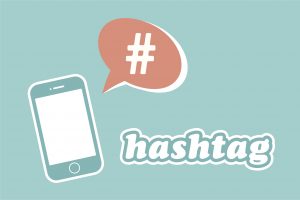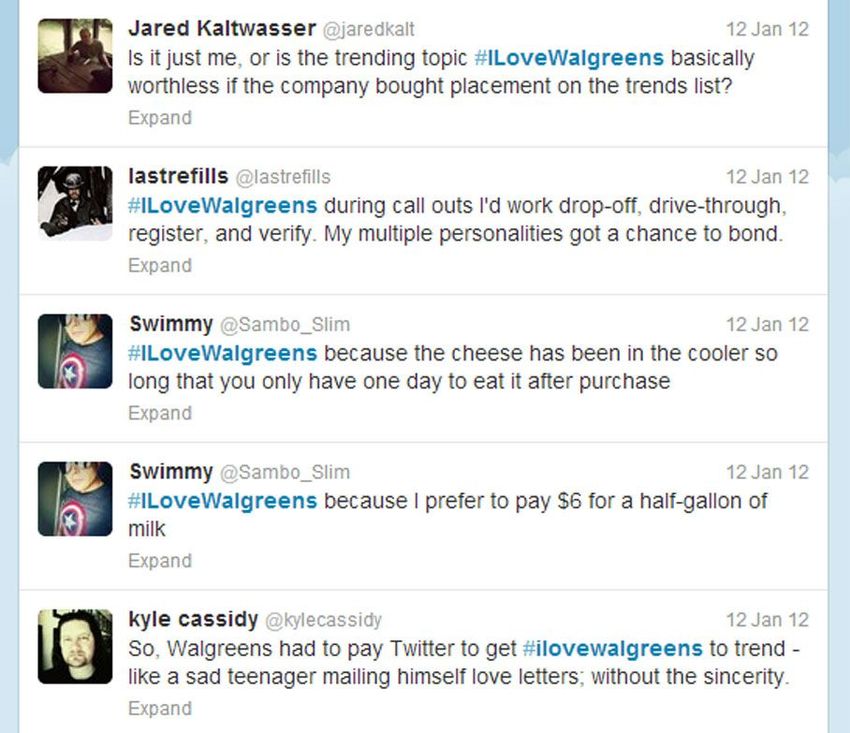 Steve Hamilton, Digital Media Director
Steve Hamilton, Digital Media Director
Hashtags: a volatile, user driven component of Twitter. Companies: brands always looking to further their online reach. A match made in heaven? Not always.
First of all, what is a hashtag? Why should I as a marketing go-getter care? A hashtag is simply a label with a topic appended to a tweet to give the tweet a specific theme. Users can search for all tweets with the same hashtag and get a full list of recent usages of that hashtag. As a business, that could be great! Let’s get a hashtag out that people can use to talk about our business! We can drive up discussions about our brand that fit our message. What could go wrong?
Here’s how it all goes wrong. Once you’ve created a hashtag for people to use, it’s no longer in your hands. The users are ultimately going to shape what the hashtag is about, regardless of your intentions. You’ve essentially thrown your great idea to the wolves and hope that everyone out there stays on message. History shows that there’s no way they are staying on message. When given the choice between these options: talking in very polite, public relations friendly terms about your lovely brand message, making it a quick joke for a few damaging laughs, or taking an opportunity to publicly air grievances against the company, the vast majority of users are not going to stay on brand message. The thing with tweets is that you can’t filter them. Your users might see the rare beautifully crafted on brand tweet, but it’s going to be surrounded with jokes, insults and spam.
There are some ways that we can mitigate this sort of behavior. The first important thing is to be aware of is how you are perceived online. A lot of hashtag hijacks occur because companies think that they are in a lot better shape in the public eye than they really are. An example of this was J.P Morgan with its #AskJPM Q&A campaign. J.P Morgan had just taken around $13 billion dollars in taxpayer money in a bailout, and people weren’t exactly thrilled. They took the opportunity to use the #AskJPM hashtag to put the company on blast for its business practices, leading J.P Morgan to abandon the hashtag after one session. It doesn’t take a lot of foresight to know that people weren’t impressed with the bailout and would take the opportunity to grill you on it if you hand them the chance on a silver platter. If you’ve just made a public move that people aren’t exactly thrilled about, don’t toss them a public platform to make you look bad.
Do not create a blatantly self-serving hashtag campaign. If you create a “This is why we love us!” campaign, on top of it feeling forced and sad, users are going to do exactly the opposite. Walgreens even paid to promote the #ILoveWalgreens hashtag so it would show up first on the list of trending topics. Users took this opportunity to insult them for high prescription prices and wait times. Never ask for compliments. If you wouldn’t do it to someone right in front of you, why would you do it to millions of people on the Internet?
Good hashtag campaigns are not vague, and are not open to interpretation. They encourage users to be creative in a positive light, and forward brand recognition. Red Bull had a great campaign called #PutACanOnIt. It was simple, encouraging users to take pictures of Red Bull cans in unique and interesting situations. People did it in droves and it led to huge engagement for Red Bull. The best part about it was that on its own, the hashtag doesn’t scream Red Bull, which means if things went south, they could quickly and safely disengage without any damage. They let the users drive the content, and associated it with the brand through their interaction.
The lesson here is to keep control of your story. Don’t give users the opportunity to shape how your brand is perceived online, keep things in your hands. Online interactions require a lot of foresight and thinking of every possible outcome to protect yourself. In this case, prevention is indeed the best medicine. Hashtags can be useful to use to get some publicity, but take care that you don’t set yourself up for preventable public backlash.